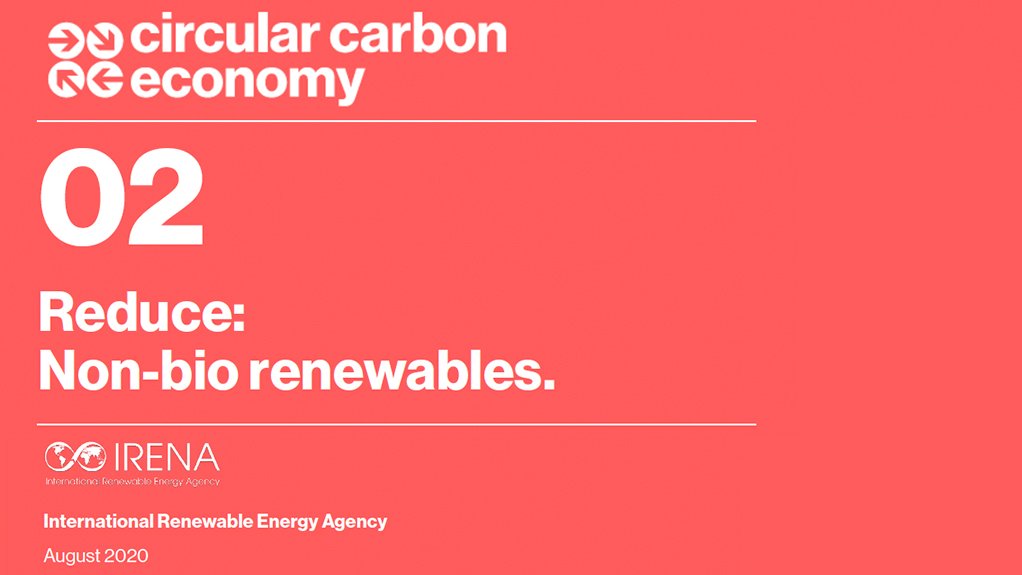- Reduce: Non-bio renewables2.39 MB
Renewable energy technologies lie at the heart of the world’s transition to a sustainable energy future. Solar photovoltaics (PV), onshore wind and hydropower can all compete head-to-head with power generation based on the combustion of fossil fuels, providing viable, cost-effective options to cut global emissions.
Renewable energy technologies could also help to drive the economic recovery from the COVID-19 pandemic, simultaneously ensuring sustainability, boosting energy security, creating jobs, strengthening resilience and improving people’s health and welfare.
Circular Carbon Economy report 02, from the International Renewable Energy Agency (IRENA), examines the essential role of renewables energy to ensure a sustainable, prosperous, climate-safe global future. Prepared for the King Abdullah Petroleum Studies and Research Centre (KAPSARC) under Saudi Arabia’s G20 Presidency, the study highlights the need for concerted action worldwide to enable faster uptake of renewables.
G20 member countries are highly interdependent, reinforcing their common interest in creating a sustainable and stable world. This applies to energy, environmental and climate considerations. Collectively, G20 countries can drive the changes needed to foster intensified renewable energy development and promote an accelerated global energy transition.
Focusing on “Reduce” opportunities, the study forms part of KAPSARC’s Circular Carbon Economy collection, featuring contributions from international partners for G20 meetings in September 2020.
Report by Irena
EMAIL THIS ARTICLE SAVE THIS ARTICLE ARTICLE ENQUIRY
To subscribe email subscriptions@creamermedia.co.za or click here
To advertise email advertising@creamermedia.co.za or click here











